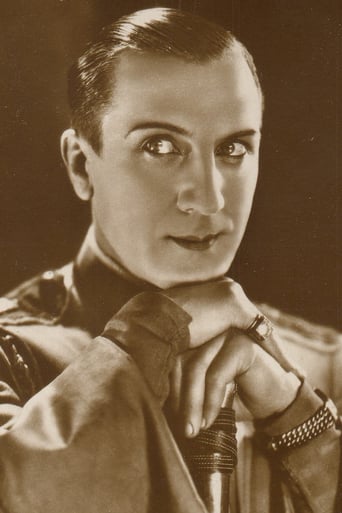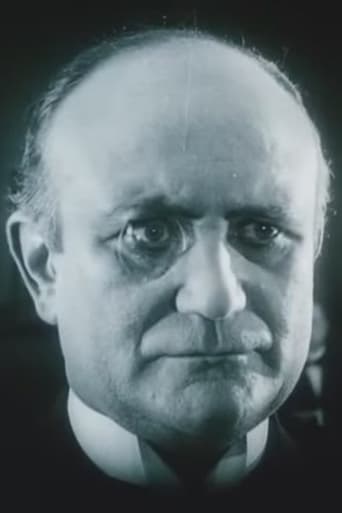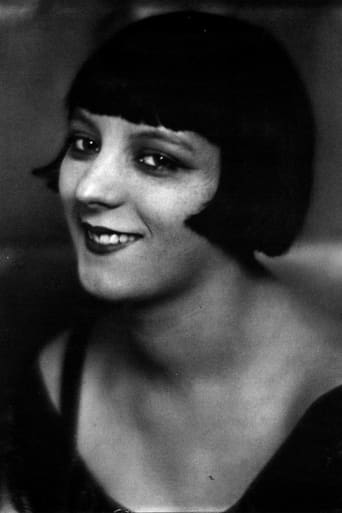VividSimon
Simply Perfect
Skunkyrate
Gripping story with well-crafted characters
Acensbart
Excellent but underrated film
Quiet Muffin
This movie tries so hard to be funny, yet it falls flat every time. Just another example of recycled ideas repackaged with women in an attempt to appeal to a certain audience.
genet-1
A surprisingly ambitious production by Albatros Films, the company set up in Paris by Alexandre Kamenka to utilize artists and technicians forced out of Russia by the 1917 revolution. Foremost among these was Ivan Mosjoukine, who provided the plot idea for the film and stars with his then-wife Nathalie Lissenko. Mosjoukine plays Prince Roundhito-Sing, part of the guard in the palace of the Grand Khan, ruler of a nation identified in some synopses as Tibet (although 'Khan' suggests Asia, 'Mogols' implies India, and the titles refer to the Prince simply as 'Hindou.') When a usurper seizes the throne and imprisons Zemgali, the princess he loves, the Prince flees to France. On the boat, he meets actress Anna and her director, who decide, despite his naiveté about the west, that he has the makings of an actor. In Paris, he's cast opposite Anna, on whom he develops a crush, much resented by her villainous banker lover Morel. When Morel sees the Prince wearing a ring he gave to Anna, Morel traps him into signing a large check on a non-existent account.Learning that Anna doesn't love him, the Prince drinks himself into a stupor at a nightclub. At dawn, he hails a taxi and orders the driver "Drive anywhere. It doesn't matter - just fast!" The cab careers through the outskirts of Paris, delivering him to a hotel where a masquerade ball is in progress.Meanwhile, four of the Prince's countrymen arrive.They reveal that the Prince is the true heir to the throne, now vacant since the fall of the usurper. A lavish enthronement ceremony concludes the film, at which Anna symbolically places the Prince's hand into that of Zemgali.Jean Epstein makes accomplished use of the tiny Albatros studios in the suburb of Montreuil-sous-Bois. By placing action in the background and shooting across rooms full of furniture or, in the closing scenes, a foreground crowd, he creates the illusion of space. Some exteriors employ an early version of deep focus photography. The sequence of the cab rushing through the early morning streets is reminiscent of Russian post-revolution documentary, suggesting Epstein was familiar with such directors as Dziga-Vertov. He's at his best in the set pieces, in particular the frenetic nightclub scene. The three-piece balalaika and guitar band is obviously meant to suggest one of Paris's Russian cabarets but the sign behind them, "Jokey Club", implies they are in Montparnasse's disreputable Jockey Club. (Alice Prin, aka Kiki of Montparnasse, makes a brief appearance as a dancer.) In the course of the evening, the Prince downs the contents of a bottle, orders a dozen more, picks a fight with two other guests, has visions of Anna – all while the crowd dances wildly around him in a space barely larger than a domestic living room Unfortunately Epstein's efforts are frustrated by the stars. Lissenko has only one expression, a stolid glower. Mosjoukine, by contrast, verges on the manic. Given a wad of money by Morel, he capers out the gate of Anna's house, scattering notes in his wake. Some of what remains is spent at a florist to fill her house with flowers. When she thanks him, he scampers around the room, disappears out a door at the rear, and is seen running back and forth on a loggia in the deep background. Even in repose, he seldom looks more than ridiculous. All the same, the film is an interesting survival, meticulously restored by the Cinematheque Francaise, with a new piano and organ score, and the original tinting.
chaos-rampant
What a thrilling discovery that this film was actually available to watch, and in its complete version of 93 minutes! I was beaming with joy throughout - one of my favorite filmmakers, a keen theorist at the time, directing one of the most interesting actors of the era, in a film that superficially seems to be about movie-like excess and indulgence, conceived on a lavish scale, - the Grand Khan, throngs in costumes outside the palace, cavalcades, danger and intrigue - but is actually about shatters of a fabricated story falling from the mind.This interests me doubly, triply, because I've been keeping track of the Russian cinematic trail into Paris. Perhaps the single most important missing link in this endeavor is L'angoissant Aventure, actually filmed on the run from the Soviets over a period of months as the Ermolief troupe, the Russian cinematic aristocracy before Eisenstein, was forced to relocate to Paris, where it made acquiantances with the new generation coming into film. I have not been able to find that film, so if any reader has information I would be grateful to know. Thankfully we have this; incidentally also about an aristocrat, a Mongol prince, forced into exile in France and bumping into a film production en route there. No wonder Mozzhukhin wrote the script. His next film would be for L'Herbier.The joys in this are manifold. If you are one of those who labor under the impression that silent film was all about pantomime, theatric setups, simplified emotion and gross ahistoricity, you will have the chance to smirk at the exotic movie Tibet portrayed here and the melodrama of forbidden princely love, then have the rug pulled from under your feet as the film washes up in France and turns unerringly modern. The acting is subdued, the camera captures amazing views from a car in motion, a new geography unknown before the camera, the relationship between prospective lovers is ambiguous. Epstein beautifully renders the confrontation of the two cinematic worlds, as the furious Prince breaks up a scene of the woman being strongarmed by a villain on the ship, acting honorably only to be told they're shooting a movie so it's all make-believe.More cool stuff ahead. So the Prince turns into an actor and starring in a movie as himself, presumably a wild adventure like the opening of the actual film. Is this the first film about a film being made in the history of the medium? If not, it's certainly the first intelligent one, and perhaps the only one until Sternberg four years later.See what Epstein does. We know that the Prince was exiled and the throne usurped from him by an impostor, passing as the king in the king's place, so we have an actor on that end that looks like a movie but is supposed to be real calling the shots that produce the chain of events. Back in France, we are among actors, our character one, and spend time on the backlot of film sets.So it's no surprise that the finale is an actual marvel of cinematic deception, inside an upscale hotel, where police are waiting for the Prince outside the glass facade with couples faintly seen dancing inside the lobby as though projected on a movie screen. There is a ball masque where confetti rains on our masked lovers, on par with anything Sternberg conceived and predating him by a good number of years.More clues; a one-eyed pianist, the monocle on the banker that makes his one bulging eye look like a lens, the dreamy finale obviously a deathbed hallucination.And something else. Music is of a high importance here, all through the film we can see violinists accompanying the production - but of course the film-within is naturally going to be silent, the score performed live in each theater as was customary. We can only presume they are playing to set the mood for the actors. Epstein superimposes at one point violins being fiddled over the lull of waves at sea.So we have something invisible, in our case inaudible, that serves only to cultivate the space around the normally fabricated art. Say a melodrama filmed as a poem. This was Epstein's innovation, the music all in the roaming eye fiddling across the world.
dbdumonteil
A Cecil B De Mille in miniature..There's nothing like Thibet to begin a story.There a cast of (approximately) thousands gather to acclaim the Grand Khan (or a French actor made up as the Grand Khan).But we learn that this Mogol is an impostor.The rightful heir is Prince Roundghito-Sing,in love with a princess whose name I forgot.The Khan gets jealous and throws the girl into a dungeon.Her attentive escort snatches the damsel in distress of the tyrant's clutches .But ,alas,the princess is recaptured and all the prince has to do is sail away...And that's only the first five minutes! On the ship en route to Europe he meets a director and an actress who take him to Paris.It's the director's turn to get jealous.A scene on the ship might have inspired Hergé for his Tintin adventures:the prince comes to the rescue of another damsel in distress but it's only a movie.There is a similar scene in "the cigars of the pharaoh".Another good scene is the fancy dress ball where anything can happen .And everything happens as the prince meets up again with his sister who is none other than...And Thibet is not forgotten.Quite a feat to tell such a story in about 20 minutes!



